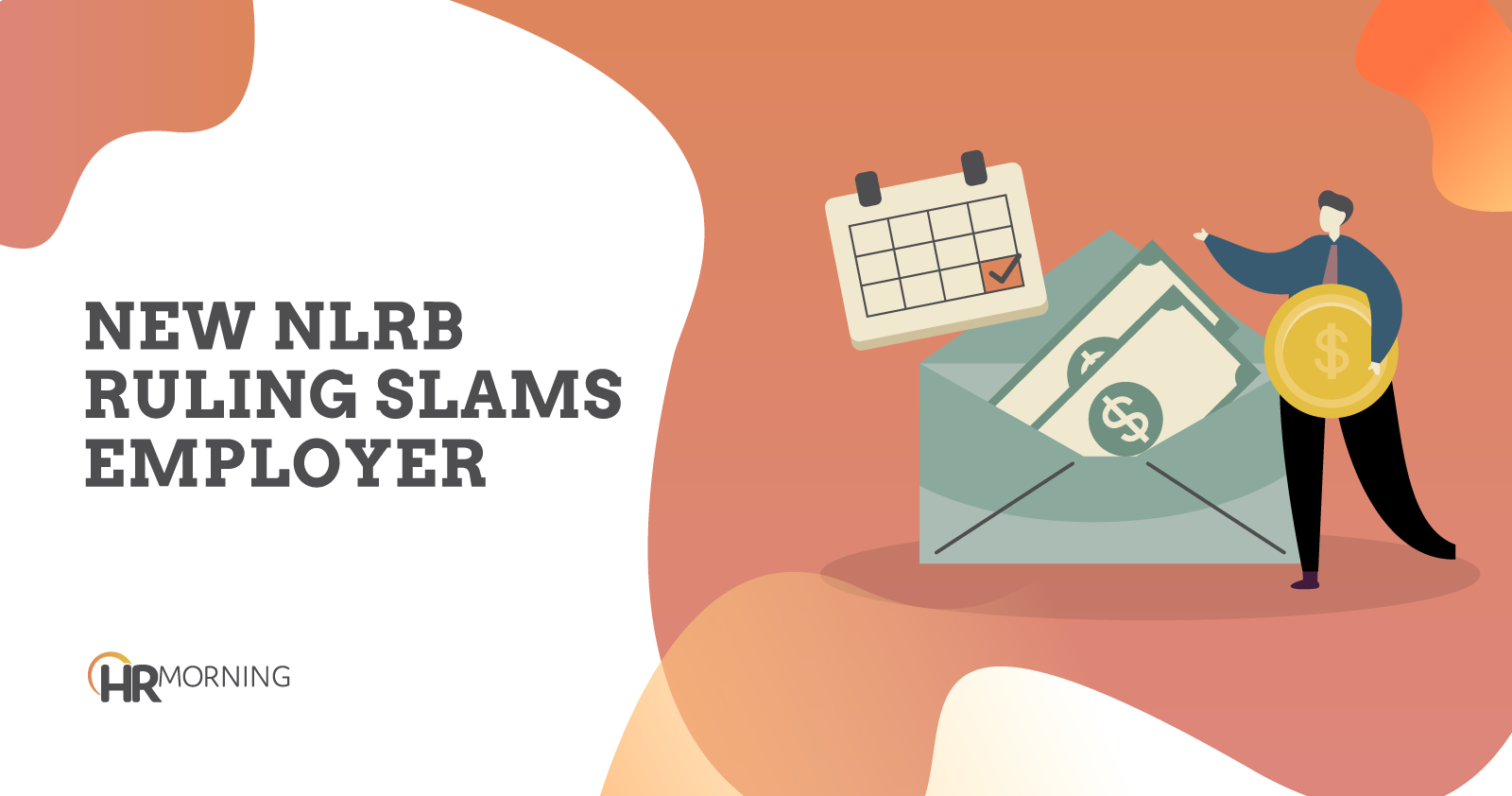A new NLRB ruling says an employee was improperly fired for asking “the most basic of employee questions.” The question, in essence: Where’s my paycheck?
This story is about Carlos Martinez, who worked as a security officer for a company called TSG.
TSG had a contract to provide security services at a place called Sunny Glen, which is in Texas and temporarily houses unaccompanied migrant minors.
TSG secured the Sunny Glen contract at the end of September of 2021. Before then, Martinez had worked for previous security contractors at the facility for two years without any problems.
Martinez started working for TSG at the start of October of 2021. Like many people, he was used to getting paid every two weeks on a regularly scheduled day.
Show me the money
But something big changed when he started at TSG: When the regular payday came, there was no paycheck.
Martinez says a supervisor brushed him off when he asked about getting paid, and when he checked with co-workers, they told him they had not been paid either. That led Martinez to call the federal Department of Labor (DOL) to tell them what was going on.
The NLRB’s decision in the case says that the call prompted a series of “Machiavellian events” that culminated with Martinez’s employment termination.
Specifically, a DOL investigator returned Martinez’s call while he was on duty. He muted his phone while the investigator added Carlos Saldivar to the call and told him there would be an investigation if he did not pay his workers. At that time, it was not clear to Saldivar that it was Martinez who had placed the call to the DOL.
An ominous warning
A co-worker told Martinez that supervisors had discovered that he placed that call and that the security director said he would suffer “severe consequences” for doing so.
Supervisors called Martinez to the security director’s office. There, they confirmed with him that he had made the call and terminated his employment. They said he had disrupted a training session, used a personal cell phone at work, questioned direct orders and was insubordinate. That happened just three days after the call to the DOL and only about three weeks after Martinez started working for TSG.
A supervisor later testified that no security officer had ever been disciplined for using their phone.
In a decision issued near the end of July, the NLRB determined that TSG violated the NLRA by threatening, interrogating and firing Martinez.
The security director violated the NLRA when it told Martinez’s co-worker that severe consequences would flow from Martinez’s call to the DOL. This is because it threatened severe consequences for engaging in protecting activity: contacting the DOL about wages.
NLRB ruling for employee
The decision also found that TSG violated the NLRA when an HR staffer asked Martinez whether he had called the DOL and why.
This was an unlawful interrogation, it said. This was true because there was animus; the question was asked to get information to support an unlawful firing; it was made in a formal meeting; and the HR staffer was a high-level consultant who reported directly to Saldivar.
The discharge also violated the NLRA, the decision found. There was enough evidence to show that Martinez was let go because he engaged in the protected conduct of talking about his pay with the DOL.
“[I]t is abundantly apparent that TSG was offended that Martinez called the DOL, retaliated against him on this basis, and then tried to cover its actions with several half-baked reasons,” the decision explained.
Reinstatement, other relief
The decision ordered TSG to reinstate him to his former position or a similar one. It also ordered payment for lost earnings and benefits.
Most employers will not run into the problems caused by not paying an employee and then retaliating against them when they ask for their money. Still, this ruling demonstrates the broad scope of the NLRA’s ban on unlawful interrogation and retaliation.
Employers may think that simply asking an employee whether they have contacted the DOL might be permissible. But here, based on the totality of the circumstances, it was deemed to be an unlawful interrogation.
Be acutely aware that contacting the DOL is a protected activity, and that threatening or retaliating against employees because they do so is a big mistake.


